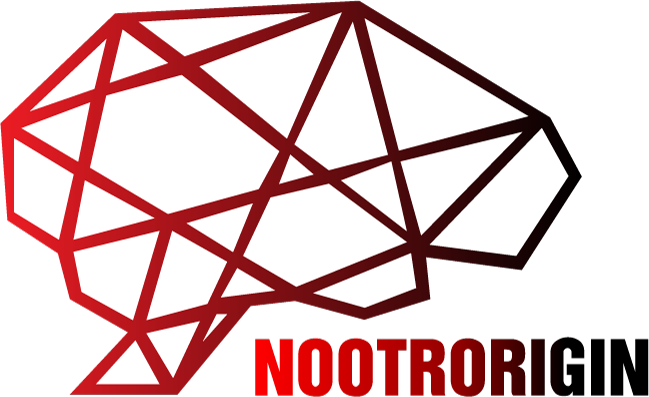Anhydrous betaine: the secret weapon of healthy living
BlogIn the vast world of food additives, one ingredient stands out for its versatility and health benefits: food-grade betaine anhydrous.

This natural sweetener has been gaining popularity among health-conscious consumers and food manufacturers alike. Today, let’s delve into the wonders of food-grade betaine anhydrous, exploring its origins, properties, applications, and why it’s becoming a staple in modern diets.
What is Food-Grade Betaine Anhydrous?
Food-grade betaine anhydrous, also known as glycine betaine or simply betaine, is a quaternary ammonium compound naturally found in various plants and animals, including beets, spinach, and liver. It’s a highly efficient and premium nutritional additive that can be used in a wide range of industries, including food, medicine, cosmetics, and even aquaculture.
Chemically, betaine anhydrous has the formula C5H11NO2 and a molecular weight of 117.15. It’s a white crystalline powder with a slight characteristic odor and a sweet taste. Betaine anhydrous is highly soluble in water and methanol, making it ideal for use in various food products.
Health Benefits of Food-Grade Betaine Anhydrous
- Natural Sweetener: Betaine anhydrous is a natural sweetener with no calories or sugar. This makes it an excellent alternative to traditional sweeteners like sucrose or honey, especially for those managing diabetes or weight.
- Antioxidant and Anti-Aging Properties: Betaine anhydrous has antioxidant properties that help protect cells from damage caused by free radicals. This contributes to its anti-aging effects, promoting overall health and well-being.
- Metabolism Booster: As a non-essential amino acid, betaine anhydrous can promote metabolism and enhance energy levels. It’s also known to support liver function and improve digestion.
- Cardiovascular Health: Studies suggest that betaine anhydrous may help lower blood pressure and cholesterol levels, contributing to overall cardiovascular health.
Anti-old favorite anhydrous betaine
Anhydrous betaine has shown a series of positive effects in anti-aging, and the following is a detailed explanation of its anti-aging effects:
- Antioxidant and free radical scavenging
Anhydrous betaine has strong antioxidant capacity and can help remove free radicals in the body. Free radicals are important factors that cause cell damage and aging, they will attack the molecules within the cell, resulting in the destruction of cell structure and function. By scavenging free radicals, anhydrous betaine can significantly reduce the damage of oxidative stress on cells, thus delaying the process of cell aging. This role is particularly important for protecting skin cells and maintaining skin health.
- Regulate cell osmotic pressure and maintain cell function
Anhydrous betaine has the ability to regulate the osmotic pressure inside and outside cells, helping to maintain the normal function and morphology of cells. In adverse environments such as high salt or high temperature, cells may be damaged by water loss, and anhydrous betaine can reduce cell damage and maintain cell stability and vitality by regulating the water balance in cells. This effect helps to maintain the normal metabolism and repair function of skin cells, thus delaying skin aging.
- Promote fat metabolism and maintain good health
Anhydrous betaine also plays a significant role in promoting fat metabolism. It can help maintain a healthy state of the body by promoting the methylation reaction, participating in the oxidation process of fatty acids and reducing the accumulation of fat in the body. Good fat metabolism helps maintain the elasticity and shine of the skin and reduces skin problems caused by fat accumulation, such as wrinkles and sagging.
- Regulate your water balance
Anhydrous betaine has a hydrophilic molecular structure that can form a protective film on the surface of the skin to prevent water loss, thereby maintaining the water balance of the skin. Anhydrous betaine can regulate the water balance in the body and improve the water use efficiency of cells. A good water balance also helps slow the aging process of the skin.
- Other potential anti-aging effects
In addition to the above roles, anhydrous betaine may also play an anti-aging role through other ways. For example, it is able to regulate the gut microflora and promote the growth of beneficial bacteria, thus helping to maintain a healthy gut microecosystem. Intestinal health is closely related to skin health, and a good intestinal environment helps to promote the metabolism and repair function of the skin. In addition, anhydrous betaine may also have anti-inflammatory and antiviral effects, which can improve the overall health of the human body and indirectly promote the anti-aging effect.
However, it should be noted that proper intake of betaine can also play an antioxidant and anti-aging role. However, excessive intake may cause allergic reactions such as rashes, and may even cause uncomfortable symptoms such as nausea, diarrhea, and dizziness. Therefore, when eating anhydrous betaine, be sure to pay attention to the right amount.
Applications in Food Industry
Food-grade betaine anhydrous is widely used in the food industry due to its unique properties and health benefits. Here are some common applications:
- Sweetener: Betaine anhydrous can be used to enhance the sweetness of various food products, including candies, beverages, juices, baked goods, and dairy products.
- Flavor Enhancer: It can also improve the overall flavor and texture of food, making it more palatable and enjoyable.
- Preservative: Due to its antimicrobial properties, betaine anhydrous can help extend the shelf life of food products by inhibiting the growth of bacteria and mold.
- Nutritional Supplement: As a nutritional additive, betaine anhydrous can enrich the nutritional value of food products, making them more beneficial for consumers.
Environmental and Safety Considerations
Betaine anhydrous is a natural compound with a high safety profile. It’s been subjected to extensive safety testing and is generally recognized as safe (GRAS) by the Food and Drug Administration (FDA). However, it’s important to use betaine anhydrous in moderation, as excessive intake may cause side effects such as skin rashes or digestive discomfort.
In terms of environmental impact, betaine anhydrous is a biodegradable compound with minimal environmental footprint. Its production and use do not involve harmful chemicals or pollutants, making it a sustainable choice for the food industry.
Conclusion
Food-grade betaine anhydrous is a versatile and beneficial ingredient that’s gaining popularity in the food industry. Its natural sweetness, health benefits, and wide range of applications make it an excellent choice for health-conscious consumers and food manufacturers alike. As we continue to explore the potential of this amazing compound, it’s clear that betaine anhydrous will play a significant role in shaping the future of food and nutrition.
